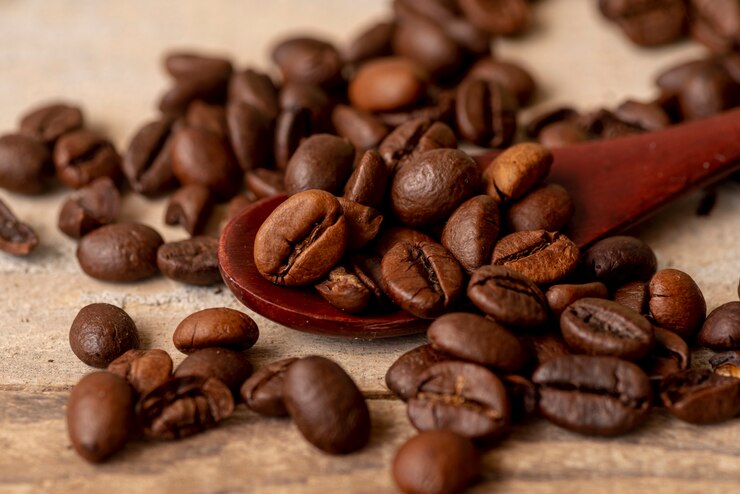
7 Best Indonesian Coffee Beans

Indonesia, with its rich and diverse coffee heritage, has captured the hearts of coffee enthusiasts worldwide. The country’s unique geography, climate, and cultural practices contribute to a wide range of flavors and profiles that make Indonesian coffee beans highly sought after. In this blog, we’ll explore the seven best Indonesian coffee beans that showcase the country’s remarkable coffee offerings.
1. Sumatra Mandheling
Hailing from the Indonesian island of Sumatra, the Sumatra Mandheling coffee is renowned for its earthy and full-bodied flavor profile. Grown in the lush highlands, these beans are processed using the wet-hulling method, resulting in a unique combination of deep, chocolatey notes and herbal undertones. The low acidity and bold taste of Sumatra Mandheling make it a favorite for those who enjoy a hearty and robust cup of coffee.
2. Java Arabica
Indonesia’s coffee legacy was solidified with the introduction of coffee cultivation on the island of Java in the 17th century. Java Arabica beans are known for their smooth and slightly sweet taste, often accompanied by a hint of nuttiness. The volcanic soil and moderate climate of the region contribute to the beans’ rich flavors, making Java Arabica a classic choice for a well-balanced cup.
3. Bali Blue Moon
Bali, known for its stunning landscapes, also produces exceptional coffee beans. Bali Blue Moon coffee beans are grown in the volcanic soil of the Kintamani Highlands. This single-origin coffee boasts a medium body, bright acidity, and sweet and fruity notes, often accompanied by hints of dark chocolate. The meticulous processing methods and attention to detail contribute to the distinct character of Bali Blue Moon coffee.
4. Sulawesi Toraja
From the island of Sulawesi comes the Sulawesi Toraja coffee, celebrated for its complex flavor profile. Grown in the Toraja region, these beans are often characterized by their full body, mild acidity, and a range of flavors including spice, cocoa, and hints of fruitiness. The unique processing method, which involves drying the beans with the fruit, lends Sulawesi Toraja its distinctive taste.
5. Papua New Guinea Peaberry
While not technically part of Indonesia, Papua New Guinea shares similar geography and coffee-growing practices. Papua New Guinea Peaberry coffee beans are small and round, often referred to as “peaberries.” These beans are known for their bright acidity, floral aroma, and unique flavor combination of citrus and spice. The beans are carefully handpicked, contributing to their consistent quality.
6. Flores Bajawa Ngura
The island of Flores is a hidden gem in the world of coffee, producing beans that are gaining recognition for their distinct qualities. Flores Bajawa Ngura coffee beans are grown in the Ngura region and are characterized by their medium body, vibrant acidity, and flavors that range from dark chocolate to tropical fruits. The combination of elevation and unique microclimates contributes to the beans’ diverse taste profile.
7. Java Robusta
Indonesia also excels in Robusta coffee production, and Java Robusta beans are a prime example of this. While Robusta beans are often associated with bitterness, Java Robusta presents a different perspective. With its full body, low acidity, and earthy flavors, Java Robusta is a versatile option that can be enjoyed on its own or as a component in espresso blends.
FAQs
What makes Indonesian coffee beans unique?
Indonesian coffee beans are known for their full body, low acidity, and complex earthy, spicy, and herbal flavors. The country’s unique processing methods and volcanic soil contribute to their distinct taste.
Which are the primary coffee-growing regions in Indonesia?
Indonesia has several well-known coffee-growing regions, including Sumatra, Java, Bali, Sulawesi (Celebes), and Papua. Each region has its own coffee-growing traditions and flavor profiles.
What processing methods are commonly used for Indonesian coffee?
Indonesian coffee is often processed using the “wet hulling” method, also known as “Giling Basah.” This method contributes to the beans’ unique appearance and flavor characteristics.
What are some reputable Indonesian coffee brands?
Notable Indonesian coffee brands include Sumatra Mandheling Coffee, Java Estate Coffee, and Bali Kintamani Coffee. These brands often source beans from different regions across Indonesia.
What flavors can I expect from Indonesian coffee beans?
Indonesian coffee beans can offer a wide range of flavors, including earthy tones, hints of spices, herbal notes, and even fruity undertones. The specific flavors depend on factors like region, processing, and varietal.
How does the geography of Indonesia influence its coffee production?
Indonesia’s volcanic soil and tropical climate create favorable conditions for coffee cultivation. The varied altitudes and microclimates in different regions contribute to the diversity of flavors in Indonesian coffee.
Can I find single-origin Indonesian coffee beans?
Yes, many coffee retailers offer single-origin Indonesian coffee beans. These beans allow you to experience the unique flavors of coffee from specific regions within Indonesia.
Are there certifications I should look for when buying Indonesian coffee?
Look for certifications such as Fair Trade, Rainforest Alliance, or Direct Trade when purchasing Indonesian coffee. These certifications ensure ethical and sustainable sourcing practices.
How does Indonesian coffee compare to coffee from other origins?
Indonesian coffee is distinct from coffee produced in other regions due to its unique flavor profile. While it may have lower acidity compared to some other coffees, its earthy and herbal flavors make it a favorite among many coffee enthusiasts.
Can I find organic Indonesian coffee options?
Yes, many Indonesian coffee brands offer organic coffee options. Organic certification indicates that the coffee was produced without synthetic pesticides or fertilizers.
What is the significance of “Kopi Luwak” coffee in Indonesia?
“Kopi Luwak” or civet coffee is a specialty coffee from Indonesia. The beans are eaten and excreted by civet cats, leading to a unique flavor profile. However, ethical concerns have arisen due to the mistreatment of civets in some production practices.
What are the cultural traditions related to coffee in Indonesia?
Coffee is an integral part of Indonesian culture, and traditional brewing methods like “kopi tubruk” (boiled coffee) and “es kopi susu” (iced milk coffee) are popular. Coffee is often served as a gesture of hospitality.
What is the history of coffee cultivation in Indonesia?
Coffee cultivation in Indonesia dates back to the 17th century during Dutch colonial rule. Indonesia became one of the largest coffee-producing regions globally, contributing significantly to the global coffee trade.
Where can I purchase high-quality Indonesian coffee beans?
You can find high-quality Indonesian coffee beans at specialty coffee shops, online coffee retailers, and even directly from some Indonesian coffee producers. Look for brands that prioritize sustainability and share information about the beans’ origin and flavor profile.
Can I visit coffee farms in Indonesia for a coffee experience?
Yes, many coffee farms in Indonesia offer tours and experiences for visitors. These tours provide insights into the coffee cultivation process and allow you to immerse yourself in the country’s coffee culture.
What role does volcanic soil play in Indonesian coffee production?
Indonesia’s volcanic soil provides a fertile environment for coffee cultivation. This soil is rich in nutrients and minerals, contributing to the unique flavors and characteristics found in Indonesian coffee beans.
What are “Peaberry” beans, and are they common in Indonesian coffee?
Peaberry beans are coffee beans that develop as single, rounded seeds within the coffee cherry, rather than the usual two flat-sided beans. While not exclusive to Indonesia, peaberry beans are found in Indonesian coffee and are often prized for their concentrated flavors.
Can I find Indonesian coffee beans with unique aging processes?
Yes, some Indonesian coffee brands offer aged or “aged-over-time” coffee, a process where green coffee beans are stored for several years before roasting. This can result in distinctive flavors and aromas.
Are there any specific roasting profiles recommended for Indonesian coffee beans?
Indonesian coffee beans can be roasted to various levels depending on personal preference. Darker roasts often highlight the beans’ earthy and spicy characteristics, while lighter roasts preserve more delicate flavor notes.
Can I blend Indonesian coffee beans with beans from other origins?
Yes, Indonesian coffee beans are often used in blends to add complexity and depth. They can complement other beans by contributing their unique earthy and herbal flavors.
How does the “wet hulling” processing method affect Indonesian coffee flavors?
The “wet hulling” method used in Indonesia involves removing the parchment from the coffee beans while they still have high moisture content. This process can contribute to the beans’ unique flavors, including their earthy and spicy undertones.
Conclusion
In the realm of Indonesian coffee, these seven beans stand out as prime examples of the country’s diverse and flavorful offerings. From the rich and bold Sumatra Mandheling to the delicate and floral Papua New Guinea Peaberry, each bean brings a unique taste of Indonesia’s coffee landscape to your cup.
As you explore the world of Indonesian coffee beans, remember that the flavors are deeply intertwined with the local culture, geography, and processing methods. Whether you’re a fan of earthy and robust notes or prefer the brightness of citrus and spice, Indonesian coffee beans offer a captivating journey through the intricate world of coffee flavors. So, brew a cup of your chosen Indonesian coffee, take a sip, and let your taste buds embark on an exotic adventure across the Indonesian archipelago.
Affordable and Efficient: The Best Budget Coffee Makers of 2024
Finding the best coffee maker that doesn’t break the bank can feel like a challenging quest. But with 360CoffeeMaker, we’ve simplified your search for the best home coffee maker that suits your budget. For those who prefer to brew single servings at a time, the best single cup coffee maker of 2024 is undeniably the Keurig K-Mini. Compact, stylish, and efficient, it fits perfectly in any kitchen and caters to the needs of solo coffee drinkers or households where everyone has a different coffee preference.
If you're someone who enjoys a classic brew, the best drip coffee maker of 2024 is the Mr. Coffee 12-Cup Coffee Maker. Not only is it affordable, but it's also easy to use and consistently delivers a flavorful cup. But if you're searching for the absolute best coffee maker overall, look no further than the Black+Decker 5-Cup Coffeemaker. It's affordable, efficient, and provides the perfect balance between traditional brewing methods and modern convenience. Regardless of your choice, these budget-friendly options guarantee a quality brew without the hefty price tag.




